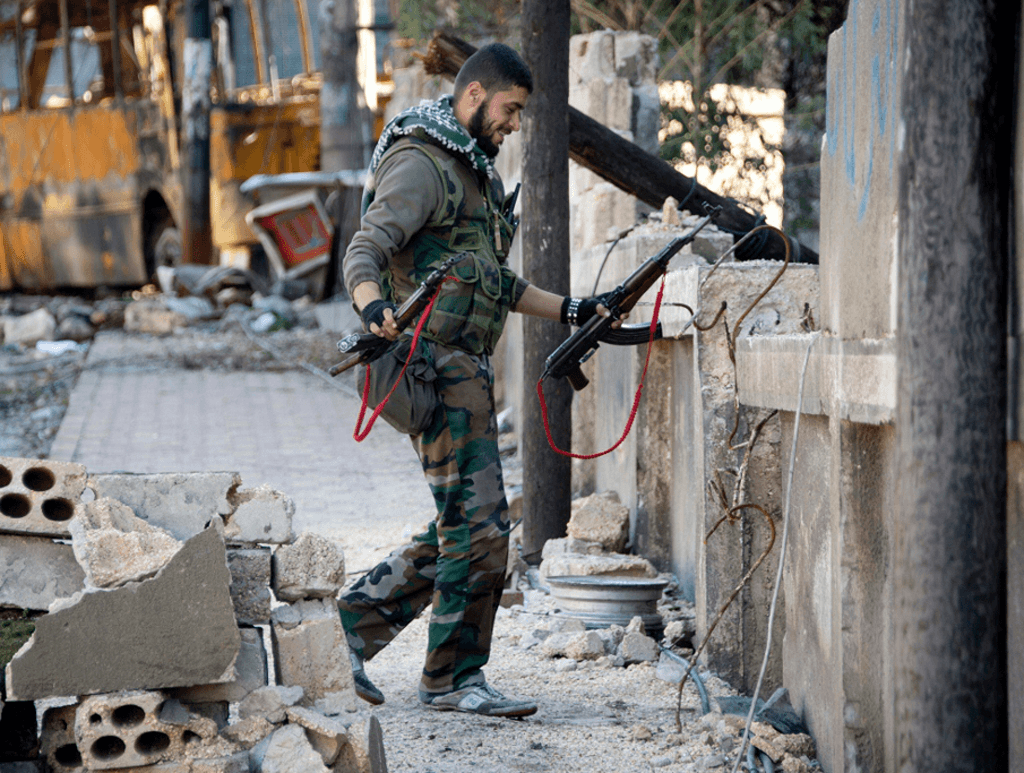Syrian rebels likely to seize chemical weapons soon
A Syrian rebel fighter in the Aleppo neighborhood of Bustan al-Basr on Dec. 8, 2012.
As Syria's brutal 21-month civil war grinds on, the likelihood of the opposition seizing control of a chemical weapon stockpile or manufacturing site is increasing as rebel groups gain more territory
“It’s almost inevitable [that rebels acquire chemical weapons],” Michael Eisenstadt, a retired Army officer at the Washington Institute for Near East Policy, told The Washington Post. “It may have already happened, for what we know
Syrian Major-General Adnan Sillu, who defected from the regime earlier this year and reportedly once led the army’s chemical weapons training program, told Al-Arabiya that the main storage sites for mustard gas and nerve agents — such as ones in Homs, east of Aleppo and east of Damascus — would be easily overrun if rebels reached them.
“They’re not secure,” Silou said. “Probably anyone from the Free Syrian Army or any Islamic extremist group could take them over.”
Last week the Syrian Foreign Ministry said the al-Nusra Front — the frontline rebel force recently blacklisted by the US — had seized a chlorine factory east of Aleppo, according to Craig Whitlock and Carol Morello of The Washington Post.
The chlorine factory is near the major chemical weapons production and research complex of Safirah, where the Syrian Army reportedly tested missile systems for poison gas shells at the end of August.
“The risks of the [proliferation] of Syria’s chemical weapons are real," Cornell professor Kathleen Vogel said. “In light of the mounting instability of Syrian military forces and the growing chaos in the country, there are dangers from the loss of tight command and control of its weapons facilities."
The US initially worried that Assad would use them on his own people, but now they are more concerned about the weapons falling into the hands of 'terrorists" such as al-Nusra, who have been linked to Al Qaeda in Iraq.
“After the regime falls, anyone could take them,” Silou said, noting that they easily could be moved to Iran, to Hezbollah forces in Lebanon or to Iraq. And until the regime falls, rebels have the opportunity to capture the key chemical sites as they attempt to cripple Assad.
Either way it is an international imperative that the chemical sites are secured, and even though defense contractors are training Syrian rebels how to secure chemical weapons stockpiles, nonproliferation analysts told The Post that no country besides the US is likely to be able to supply enough trained personnel and specialized equipment to secure and dismantle Assad's chemical arsenal.
More from our partners at Business Insider:
